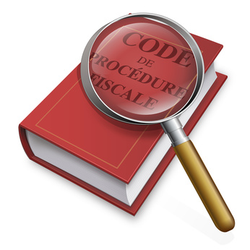Economic Analysis of Law
ComplianceTech®

Regulation Law presupposes moving from a political conception of acts (that is to say, a collective decision expressed by the State) or a civilist one (that is, a will expressed by one or several individuals in one Contract) to an economic vision of organizations whose action is the expression of the market. If one relies on the adjustment of supply and demand, that is to say, the meeting of desires and interests, there will be "self-regulation", which is the "law of the Market ", referring to Competition Law. The act of the operators is only a reflection of this sort of natural law, in action.
Regulation is then more complex because it integrates this economic rationality of the actors and systems in which the first onese are agents (homo economicus), but Regulation aims at something other than this mechanical rationality, either because of a market failure (for example in case of natural monopoly) or because the author of the standard, eg the State or the Regulator wants to obtain more than the market can give (eg access to common goods such as health) , even for insolvent claimants).
In this case, special written norms are drawn up, ex ante interventions designated in English by the term of "regulations" (and in French by the term of "réglementation"). The Regulation Law, the regulatory system, is adequate if it constitutes an incitation for economic agents to adopt behaviors that concretize the aim sought by the author of the regulatory mechanisms.
The Regulation Law will then rely on economic science to produce the right "incentives", leaving agents - producers, supplyers, claimants, consumers, taxpayers, the most diverse stakeholders - free to make choices, but inciting them to make choices that will produce in isolation or in a comprehensive or cross-breeding way, immediately or in the long term, a result corresponding to that which was intended from the outset by the person who designed the standard. In this respect, the Law of Regulation is highly strategic, whether of a technical nature, aimed at mitigating a market failure or more political. In this, it is also of a liberal nature, since it is not orders formulated to obedient people, but spaces of freedoms constructed for the benefit of persons.
This strategic use of Law then requires the necessary detour through the economic analysis of Law, that is to say the analysis of Law in its economic effects. It presupposes, among those who use the norm, not only the Legislator but also the Judge, a knowledge of the economic mechanisms, for example the theory of incentives, incomplete contracts or behavioral economics, three liberal theories on which are based the interventions Ex Ante of the public authorities and which the judgments of the Courts extend.
That is why the Economic Analysis of Law is a fully discipline. It was created in the United States by Ronald Coase (Nobel Prize for Economics in 1991). It may be merely descriptive and reveal what economic effects the Law has produced. This conception, in particular that of Richard Posner, makes the economic analysis of the law an instrument of expertise for the political decision-maker who can take it into account in order to modify the norms, and for the judge, who can take it into account for Interpreting them. A more radical conception of the so-called normative economic analysis of law is to argue that the conclusions of the analysis would oblige the decision-maker and the judge to adopt the "efficient" interpretation designated by the economic analysis without being legitimate for adopting others.
Philosophical in nature, this issue is decisive because in the first case the law and the jurists - in particular the Legislator and the Judge - still have an autonomous existence, in the second case they no longer exist really, are only the formal and explicit binding of the "law of the market" whose nature is non-legal. Law then is a way of execution, a pure and simple effectiveness of a another essential Law that is external to it, that of the "Law of Market, which is the adjustment of the offer and the demand.
Common law systems tend to fall into the normative excess of confusing what is merely a description of choice and to adopt what would be a "decision" taken by the economists themselves: Law then, as a normative system, is only what gives the enforceability and legal certainty of what becomes truly normative, e.g. the economic value of the adjustment of supply and demand. Civil Law systems integrate the Economic Analysis of Law in a manner more in keeping with the thinking of founders or current theorists such as Cass. Sunstein, allowing Legislators and Courts to integrate the economic dimension of situations without their economic reasoning implying the solution to be retained, as choices remain in Law, expressing values, and in legal systems being governed by their own legal notions and rules, at a distance from the Economy.
Even in its descriptive form, the economic analysis of the law is generally rejected in France as it disregards the role of the law in that it carries moral values. It is in reality to ignore its merely descriptive, instructive and useful function, and the fact that it opens instead the amplitude of the rational choice offered to political decision-makers and courts. Moreover, regulation is not only a technical discipline, it is also a political and philosophical issue. Descriptive economic analysis is more appropriate than the normative economic analysis of the law, which claims to vassalize and even destroy the other disciplines, which are substantially ignored.
comments are disabled for this article